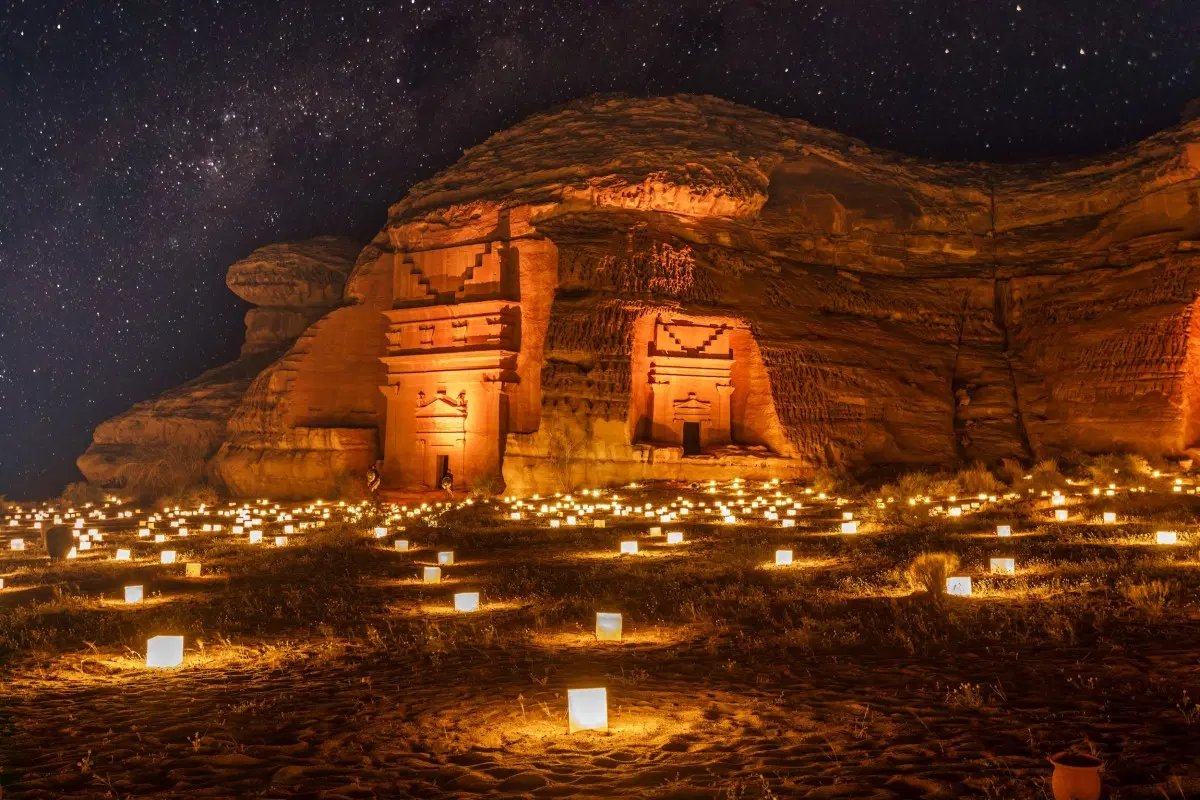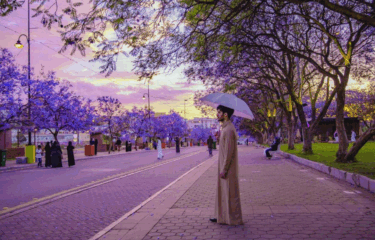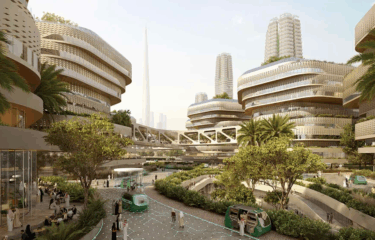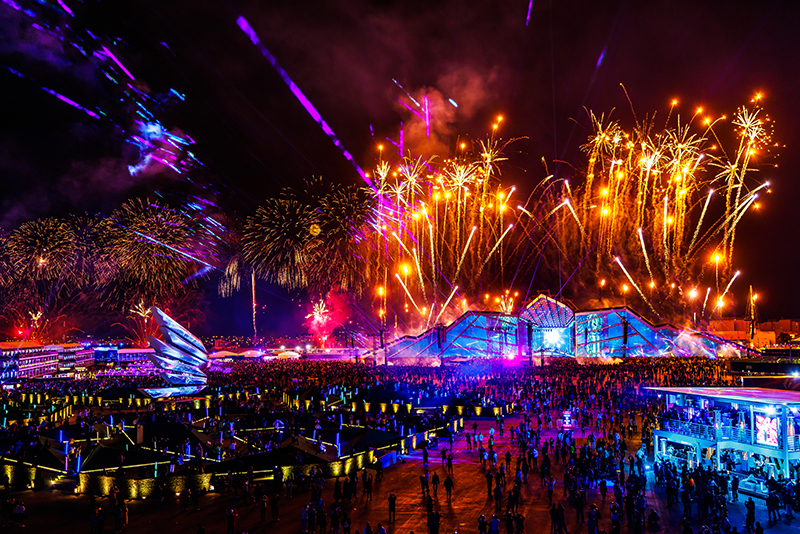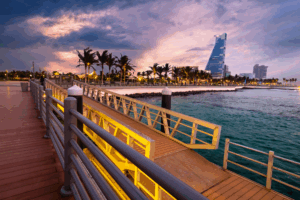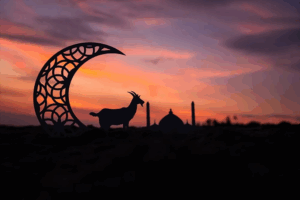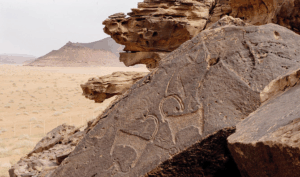In Saudi Arabia, the rhythm of life often revolves around family, community, and cherished traditions. The public holidays in Saudi Arabia are times that bring people together, creating memories filled with joy, laughter, and heartfelt connections. Across the Kingdom, families reunite, friends gather, and streets buzz with a unique vibrancy during these special times.
Locals eagerly wait for the holidays. For them, it is a tome to strengthen familial bonds, relive time-honored customs, and share warmth with loved ones. For tourists, they’re a golden window into the soul of Saudi culture—a chance to witness its traditions, enjoy its festive spirit, and experience the renowned hospitality of its people.
Imagine planning your adventures with ease, knowing exactly when to dive into the festive buzz or retreat to explore the serene landscapes of this majestic land. Whether you’re a resident longing to make the most of your downtime or a traveler seeking a deep cultural dive, understanding Saudi Arabia’s public holiday calendar can transform your plans.
So here it is—your ultimate handbook of public holidays in Saudi Arabia. Designed to keep things smooth like buttercream on your bagel and is not just a guide but your ticket to making the most of every precious moment. Whether you’re home or exploring the Kingdom for the first time, let’s dive in and plan together!
A Nation’s Birth – Saudi Founding Day
Saudi Founding Day, celebrated annually on February 22, commemorates a pivotal moment in the nation’s history: the establishment of the first Saudi state in 1727 by Imam Muhammed bin Saud in Diriyah, located northwest of Riyadh. This relatively new public holiday, made official in 2022 by royal decree of King Salman bin Abdulaziz Al Saud, honors the Kingdom’s rich heritage and unites its people in pride and celebration.
The day isn’t just a holiday—it’s a vibrant showcase of Saudi culture, resilience, and unity. Streets and homes display the iconic green and white of the Saudi flag, symbolizing the nation’s strength and solidarity. Residents and visitors enjoy a spectacular array of festivities, including dazzling fireworks, mesmerizing drone shows, and storytelling that connects the Kingdom’s illustrious past with its promising future.
Families gather to enjoy traditional meals, share tales of Saudi determination, and embrace the customs that define their identity. For tourists, it’s a chance to immerse themselves in the Kingdom’s cultural heartbeat and experience the collective pride of its people.
Whether you’re a local cherishing your heritage or a traveler seeking unforgettable memories, February 22 is a day to celebrate Saudi Arabia’s founding with grandeur and joy. Join the festivities, connect with the community, and honor the incredible journey of the Kingdom’s beginnings.
A Nation United – Saudi Arabia’s National Day
On September 23rd, the Kingdom of Saudi Arabia comes alive with celebration. The excitement echoes across deserts, cities, and hearts. In the streets, people chant “Ana Saudi fog fog.”
Saudi National Day (Youm al Watni) tells the story of unity, vision, and a nation’s remarkable journey.
In 1932, King Abdulaziz Al Saud united the Arabian Peninsula. He transformed countless regions into one Kingdom bound by shared faith, culture, and dreams. Each year, people celebrate this achievement with unparalleled enthusiasm and pride.
The day begins with a sea of green and white — the colors of the Saudi flag. Streets, homes, and landmarks display these colors proudly. Flags wave high, symbolizing resilience and hope.
Traditional music and dances, like the Ardha, bring the past to life. Swords clash rhythmically to the beat of drums. Melodies from the oud and traditional songs fill the air.
At night, the skies light up with mesmerizing fireworks and light shows. Bursts of color and brilliance paint the Saudi story. Cities host lively public gatherings. Families and friends share laughter, stories, and the rich flavors of traditional Saudi cuisine.
Social media buzzes with patriotic creativity. People post heartfelt messages and images to express their love for the Kingdom.
Saudi National Day is a vibrant celebration of unity and heritage. It reminds everyone of the nation’s progress and its bright future. Whether you are a local or a visitor, this day overflows with pride and joy.
When it falls on a weekend, the festivities often extend. People enjoy nearly a week off to spend time with family, plan trips, and attend gatherings.
A Celebration of Faith and Community – Eid al-Fitr
Eid al-Fitr marks the completion of Ramadan, a month of fasting, prayer, and reflection. It is a time of gratitude, joy, and unity that brings families and communities together in celebration.
In Saudi Arabia, the excitement begins as the crescent moon appears, signaling the start of Shawwal. This joyous occasion is accompanied by a week to nine days of public holidays, allowing families ample time to celebrate, reconnect, and rest.
The day begins early, with mosques filled with worshippers offering special Eid prayers. The greeting “Eid Saeed” echoes warmly as people embrace with three hugs, a cherished gesture in Saudi culture that spreads blessings and happiness. Festive dishes fill homes with delightful aromas, and families wear beautiful new clothes, symbolizing renewal and joy.
Children receive Eidia gifts, which often include money, new clothes, and toys, adding to the festive joy of the occasion. Families come together to enjoy a traditional feast. The meal features delicacies like mugalgal — a flavorful dish of spiced chopped lamb cooked with tomatoes. Another favorite is jareesh — a savory mix of ground wheat, meat, and spices.
The holiday is affectionately known as Sweet Eid for its abundance of honey- and date-infused cookies and desserts. These treats make Eid Al-Fitr a celebration of both community and culinary delights.
Zakat al-Fitr( a charitable donation), ensures that those in need also partake in the celebrations. Visits to relatives and friends strengthen bonds, as laughter and love fill every gathering.
Saudi Arabia’s rich culture and Islamic heritage make Eid al-Fitr truly special. The extended holidays allow families to create lasting memories, embrace traditions, and share the joy of this blessed time. At these times, expats go back to their home countries to celebrate eid with their families.
A Sacrifice of Faith – Eid al-Adha
Eid al-Adha, the “Festival of Sacrifice,” honors the profound faith of Prophet Ibrahim (A.S), who was prepared to sacrifice his son Ismail in obedience to God. As Ibrahim moved to fulfill the divine command, God replaced Ismail with a lamb, symbolizing mercy and devotion.
In Saudi Arabia, Eid al-Adha is celebrated with deep devotion and generosity. The holiday typically brings 4 to 5 business days off, allowing families to fully embrace the occasion. The day begins with special Eid prayers at mosques, followed by the performance of the animal sacrifice, a key ritual. Sheep, goats, cows, and camels are sacrificed, with the meat shared among family, friends, and the less fortunate.
Many Muslims also embark on the sacred Hajj pilgrimage to Mecca during this time, adding to the spiritual significance of the season.
Homes come alive as families gather to enjoy festive meals, exchange gifts, and strengthen bonds. The air is filled with joy, and charity is a central theme, with donations made to help those in need.
Eid al-Adha in Saudi Arabia is a time of spiritual reflection, community, and generosity. The extended holidays give everyone the opportunity to embrace the spirit of sacrifice, share blessings, and create lasting memories.
A Sacred Day of Reflection and Mercy – The Day of Arafah
The Day of Arafah, observed on the ninth day of Dhu al-Hijjah, is one of the most spiritually significant days in the Islamic calendar. For Muslims around the world, it is a day of deep prayer, reflection, and seeking forgiveness from God.
In Saudi Arabia, the atmosphere on this day is filled with devotion, as it marks a key moment of the Hajj pilgrimage. Pilgrims gather on the vast Plain of Arafat near Mecca, standing together in supplication before God. It is a moment of intense connection, a time to ask for mercy, forgiveness, and purification.
Even for those who are not performing Hajj, the Day of Arafah remains deeply meaningful. Muslims worldwide fast, pray, and reflect on their lives, taking the opportunity to seek God’s forgiveness and make sincere supplications. The day is filled with hope and a sense of spiritual renewal.
Saudi Arabia observes a public holiday on this sacred day, allowing people time to focus on prayer and reflection. The air is filled with a sense of reverence and peace, as the faithful unite in their devotion.
The Day of Arafah is a time to cleanse the heart and soul, a day when the mercy of God is believed to flow abundantly. Whether standing on the Plain of Arafat or quietly praying at home, it is a day that brings Muslims closer to their faith, creating a sense of shared devotion and gratitude.
A Journey of Tradition, Faith, and Unity – Public Holidays in Saudi Arabia
Saudi Arabia’s public holidays are a celebration of culture, faith, and unity, offering something special for both locals and tourists. These moments bring together families, communities, and travelers, allowing everyone to experience the Kingdom’s rich traditions. From the festive excitement of Saudi Founding Day and National Day to the spiritual reflections of Eid al-Fitr, Eid al-Adha, and the Day of Arafah, each holiday is an opportunity to connect with Saudi Arabia’s heart and soul.
Whether you’re a local enjoying time with family or a visitor immersing in Saudi culture, these holidays are the perfect way to embrace the Kingdom’s spirit of celebration and togetherness.
FAQs
What public holidays do locals and tourists enjoy in Saudi Arabia?
Locals and tourists in Saudi Arabia can experience public holidays such as Saudi Founding Day, National Day, Eid al-Fitr, Eid al-Adha, and the Day of Arafah, each offering a unique celebration of heritage, faith, and community.
How long are the public holidays in Saudi Arabia?
Public holidays in Saudi Arabia typically range from 4 to 9 days, allowing ample time for reflection, family gatherings, and participation in cultural and religious events, expats take it as an opportunity to travel back to their home countries.

